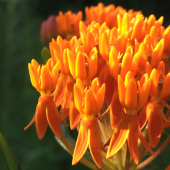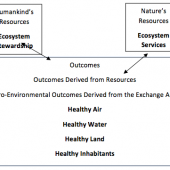
The relationship with nature and pro-environmental behaviors of community college students in introductory environmental biology courses were assessed using psychometric instruments and environmentally-themed Likert-based statements. Post-class, students demonstrated an increase in level of concern for non-human species and viewed themselves as closer to nature. Students’ motivation for environmental concern for other people or themselves was not affected by completion of the course. As a result of the class, students demonstrated increased levels of pro-environmental behavior, such as thinking about the environment, recycling, and energy and water conservation. Changes in relationship with nature and pro-environmental behavior were moderated by professor, suggesting that the professor’s teaching style and attitude may influence students’ views and attitudes. Neither gender, age, student status (full- or part-time), nor type of class (with lab or without lab) influenced students’ relationship with nature or pro-environmental behaviors. Substantially increasing the personal responsibility and degree of interaction with course content, as reflected by the comparison of an honors section to regular sections, did not result in significant changes in either relationship with nature or pro-environmental behavior. Applications to course instruction and environmental education at large are discussed.
Continue Reading
Abstract: In this paper we compare and contrast the Theory of Planned Behavior (Ajzen, 1985) with Social Exchange Theory (Homans, 1958) as conceptual foundations for eliciting pro-environmental behavior. We reason that Social Exchange Theory provides the better orientation because of its metaphorical power in casting humankind as being in a reciprocal relationship with nature rather than being in a superior position over nature. We illustrate our thinking by discussing ecosystem services (Melillo & Sala, 2008) as nature’s contribution to humankind in return for humankind’s responsible environmental stewardship.
Continue ReadingAchieving a sustainable future requires that individuals adopt different values, attitudes, habits, and behaviors, which are often learned and cemented at a young age. Unfortunately, current educational efforts are inadequate for achieving transformative action. Even programs whose primary goal is to promote responsible, pro-environmental behaviors have largely failed at creating change among students. The lack […]
Continue Reading